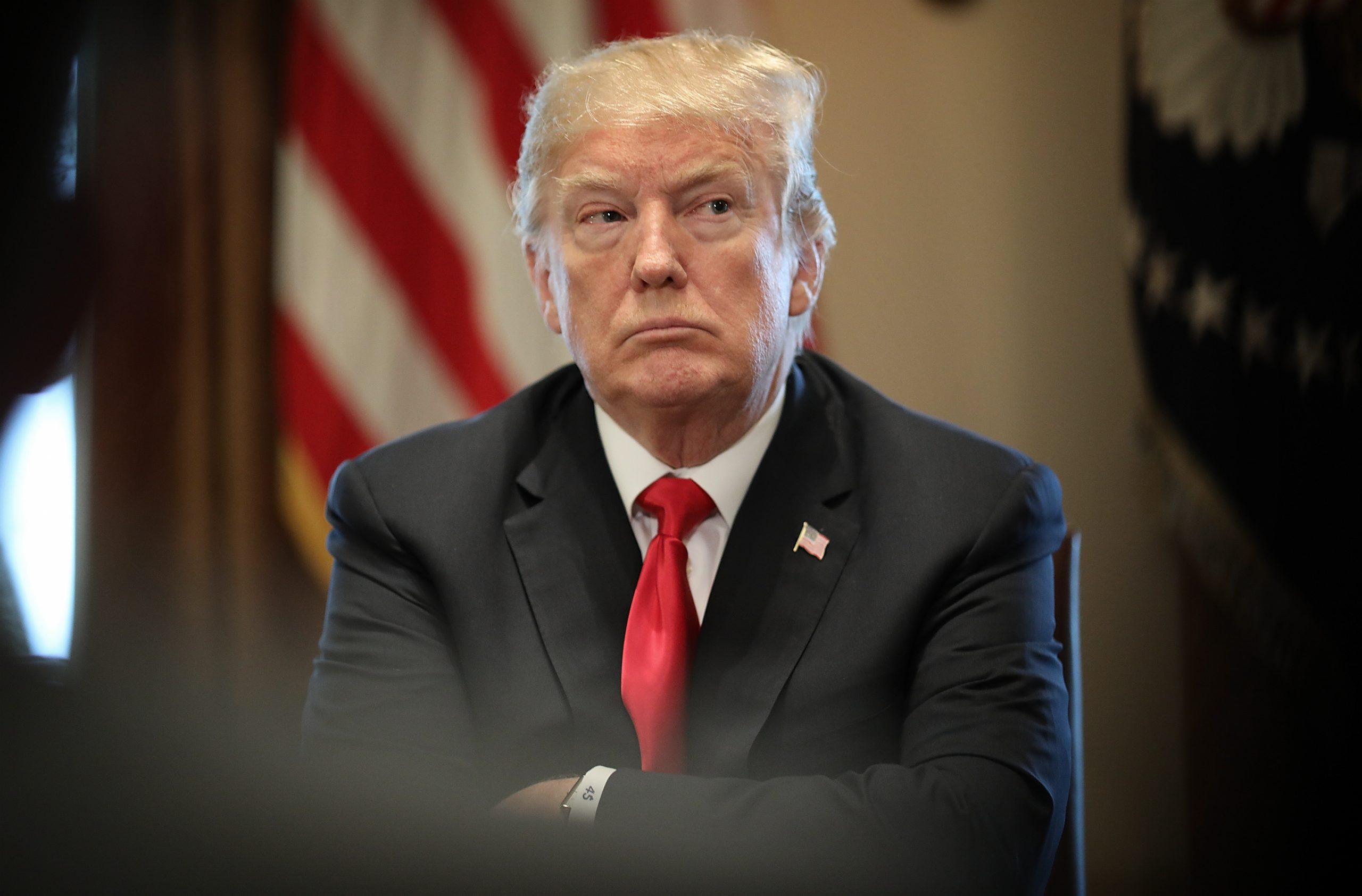Trump Strikes Down IRS DeFi Rule in Bold Move to Embrace Crypto
11.04.2025 14:00 2 min. read Alexander Stefanov
President Donald Trump has officially reversed a controversial IRS rule that sought to apply traditional tax reporting requirements to decentralized cryptocurrency platforms.
The move, announced Thursday, signals a major policy shift from the prior administration’s stance on crypto oversight.
The rule in question, finalized during the final weeks of President Biden’s term, aimed to treat decentralized finance (DeFi) protocols the same way as centralized crypto exchanges, requiring them to report user transaction data to the IRS. Critics from the crypto sector argued the policy was unworkable. DeFi platforms operate without intermediaries and have no access to user identities, making compliance with such rules technically impossible.
Lawmakers responded quickly. Both chambers of Congress voted earlier this year to scrap the rule through the Congressional Review Act, which allows simple-majority rollbacks of recent federal regulations. Trump’s signature now seals the repeal into law.
The IRS had introduced the rule in an effort to close crypto tax loopholes, building on mandates from the 2021 Infrastructure Investment and Jobs Act, which classified digital asset brokers as tax-reporting entities. That law was originally aimed at centralized firms like Coinbase and Kraken, but the expanded rule extended that definition to DeFi platforms — sparking backlash.
Since returning to office, Trump has positioned himself as an ally to the digital asset world. He’s made clear he wants the U.S. to embrace blockchain innovation, forming a dedicated crypto task force during his first week and even signing an order in March to begin a federal bitcoin reserve. The decision to axe the IRS rule fits squarely within that broader agenda.
-
1
Federal Reserve Clears Path for Banks to Enter Crypto Market
24.06.2025 8:00 2 min. read -
2
Vietnam Charts a Clear Course for Digital Assets With New 2026 Law
16.06.2025 18:00 1 min. read -
3
GENIUS Act Clears Senate, Setting Stage for First U.S. Crypto Law
18.06.2025 12:00 1 min. read -
4
Coinbase and Set Gemini to Expand in EU Under MiCA Rules
17.06.2025 13:00 2 min. read -
5
U.S. Senate Moves Closer to Passing Landmark Stablecoin Legislation
17.06.2025 10:00 1 min. read
Arizona Governor Vetoes Bill, Related to State Crypto Reserve Fund: Here Is Why
Arizona Governor Katie Hobbs has officially vetoed House Bill 2324, a legislative proposal that aimed to create a state-managed reserve fund for holding seized cryptocurrency assets.
SEC Explores New Fast-Track Process for Token-Based ETFs
The U.S. Securities and Exchange Commission (SEC) is in the early stages of developing a standardized listing framework for token-based exchange-traded funds (ETFs), according to a July 1 report by journalist Eleanor Terrett.
SEC Approves Grayscale ETF Tracking Top Five Cryptocurrencies
The U.S. Securities and Exchange Commission (SEC) has officially approved the conversion of the Grayscale Digital Large Cap Fund into an exchange-traded fund (ETF), finalizing its transition from an over-the-counter product into a fully regulated ETF structure.
U.S. Supreme Court Backs IRS Access to Crypto Exchange Data
In a major development for cryptocurrency regulation and user privacy, the U.S. Supreme Court has declined to hear a challenge to the IRS’s authority to collect broad customer data from crypto exchanges.
-
1
Federal Reserve Clears Path for Banks to Enter Crypto Market
24.06.2025 8:00 2 min. read -
2
Vietnam Charts a Clear Course for Digital Assets With New 2026 Law
16.06.2025 18:00 1 min. read -
3
GENIUS Act Clears Senate, Setting Stage for First U.S. Crypto Law
18.06.2025 12:00 1 min. read -
4
Coinbase and Set Gemini to Expand in EU Under MiCA Rules
17.06.2025 13:00 2 min. read -
5
U.S. Senate Moves Closer to Passing Landmark Stablecoin Legislation
17.06.2025 10:00 1 min. read


